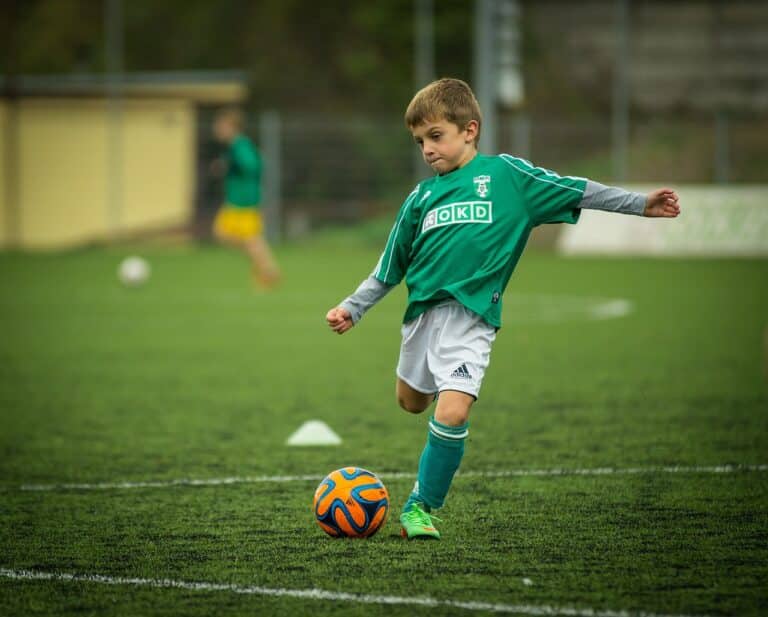
Getting braces doesn’t have to sideline you from your favorite activities, including playing sports. With the right care and the right approach, you can stay active and confident throughout treatment without giving up the things you love to do. By adapting some behaviors, taking extra precautions like wearing mouthguards, and being patient, you will adapt quickly to braces without missing a beat–or a game.
At Dental Depot of Oklahoma, our experienced orthodontic team of skilled, compassionate specialists is committed to delivering top-tier care that fits your budget and your life. With multiple orthodontic locations across the state, it’s easy to find expert care close to home. What’s more, at several locations, you can access both orthodontics and comprehensive routine dental services all in the same friendly office. Recognized as a Diamond Invisalign Provider—among the top 1% nationwide—Dental Depot of Oklahoma brings precision, advanced technology, and personalized treatment plans to every patient. From flexible financing options and commonsense pricing to clear explanations and family-first care, we ensure you or your child can confidently adapt to braces and keep doing everything they love, from playing sports or music to snapping selfies and singing along, all while creating a healthier, happier smile.
Braces shouldn’t keep you—or your child—from enjoying the sports you love. Whether it’s football, basketball, baseball, swimming, or running, you can stay active and competitive while in orthodontic treatment. The key is knowing what to expect and how to protect both your smile and your braces along the way.
The type of braces you have may affect their durability during play. Metal braces are the most impact-resistant, while ceramic braces are a bit more fragile. Clear aligners, like Invisalign, are removable and can sometimes make sports easier, but they still require proper care. No matter the sport or appliance, contact-heavy activities like football or basketball carry a higher risk of damage than low-impact sports like swimming or track.
The most important step in playing sports with braces is wearing a mouthguard. This helps protect your teeth, braces, and mouth from injury. There are several types to choose from, including stock, boil-and-bite, braces-specific, or custom-made. The right one should be comfortable, fit securely over your braces, and provide strong protection. Your orthodontist can recommend the best option for you.
It’s also a good idea to carry extra supplies like orthodontic wax and elastics, especially during games or tournaments. Wax can ease irritation if your braces rub against your mouth, and elastics are easy to lose. After each practice or game, check for any soreness or damage to your braces. If something doesn’t feel right, schedule a visit with your orthodontist right away.
With the right preparation and protection, you can play any sport confidently—even with braces.
Even with the best care and preparation, accidents can still happen. A loose bracket or poking wire might feel alarming in the moment, but it’s usually nothing serious. Braces are designed to be repaired, and with quick action, you’ll be back to playing in no time.
In most cases, a broken bracket or wire is only a small bump in your braces treatment, not a setback, and it won’t keep you from getting back in the game.
Getting braces doesn’t mean you have to give up the things you love. Instead, learning how to live normally with braces can make the process smoother, easier, and less stressful.
For the most part, braces won’t require major changes to your routine. Still, some activities—like playing an instrument or eating certain foods—may take a few small adjustments.
Some activities, like speaking or playing an instrument, may feel different at first. That’s completely normal. Your mouth will adapt, and with a little patience, things will return to feeling natural again. Give yourself time to adjust and don’t get discouraged.
Eating is one area where you’ll need to be more careful. Hard and sticky foods—like nuts, hard candy, and gum—should be avoided because they can damage your braces. When eating out, chew with your back molars and swish water afterward if food gets stuck. Carrying floss or an interdental brush makes quick cleanups easier.
If you have an upcoming performance, presentation, or event, practice with your braces beforehand. Speaking, singing, or playing an instrument may take some getting used to, but the more you practice, the more natural it will feel.
Your oral care routine won’t change much with braces, but it does require consistency. Brush and use mouthwash as usual, and choose floss made for braces, such as waxed floss or one with a threader. Keeping up with these habits helps ensure your treatment stays on track.
Braces are part of your smile, so wear them confidently. Take photos, laugh with friends, and enjoy life without holding back. If you want a more discreet look, ceramic braces or clear aligners may be an option, or you can have fun picking elastic colors that match your style.
Your orthodontist is your best resource throughout treatment. They can answer questions, suggest solutions, and give personalized advice for any situation. Don’t hesitate to ask during appointments or follow-ups. Their guidance makes adjusting to life with braces much easier.
Braces may feel like a big adjustment at first, but they’re simply a step toward a healthier smile and greater confidence. At Dental Depot of Oklahoma, our team is here to make the journey as smooth and comfortable as possible. From your first consultation to your final appointment, we provide personalized care, clear guidance, and ongoing support—helping you not just wear braces, but truly live your best life with them.
Find a location near you and schedule your appointment or orthodontic consultation today!
Schedule your orthodontic consultation today and discover how braces can fit seamlessly into your active or athletic lifestyle!